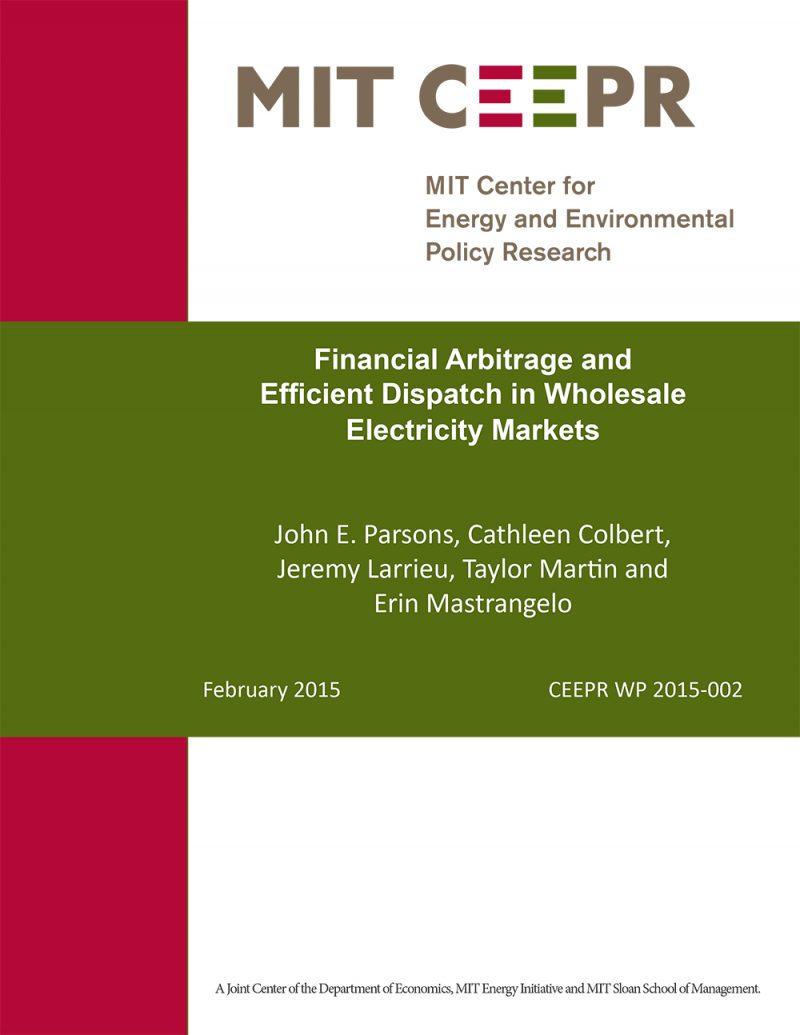Financial Arbitrage and Efficient Dispatch in Wholesale Electricity Markets
John E. Parsons, Cathleen Colbert, Jeremy Larrieu, Taylor Martin and Erin Mastrangelo
February 2015
Virtual bidding is a type of transaction introduced into wholesale electricity markets to improve competition and pricing. This paper analyzes the theory behind virtual bidding and describes circumstances under which it does not work as advertised. The case for virtual bidding is predicated on an oversimplified model of the multi-settlement market design. The complexity of the unit commitment and optimal power flow problems forces the actual market algorithms to make compromises with the theoretical model. These compromises create situations in which virtual bidders can pro fit without improving system performance. Indeed, in these situations, virtual bidding can add real costs to system operation. The paper illustrates this with a specific case study of virtual bidding in California, and with a matching numerical illustration. The paper explains the general nature of the problem with experiences in other regions and other situations. The fault with virtual bidding identified in this paper needs to be incorporated into any assessment of the costs and benefits of virtual bidding.



